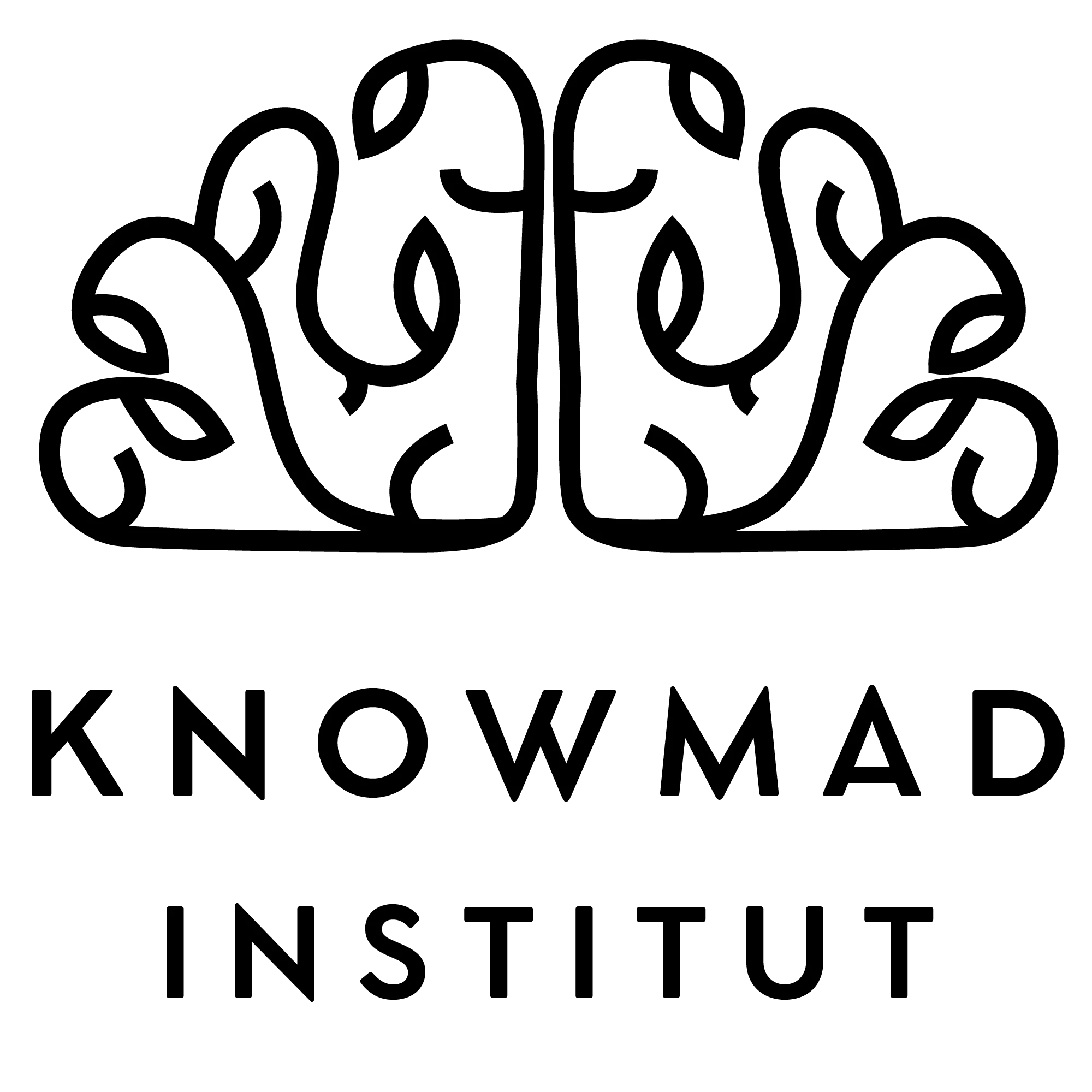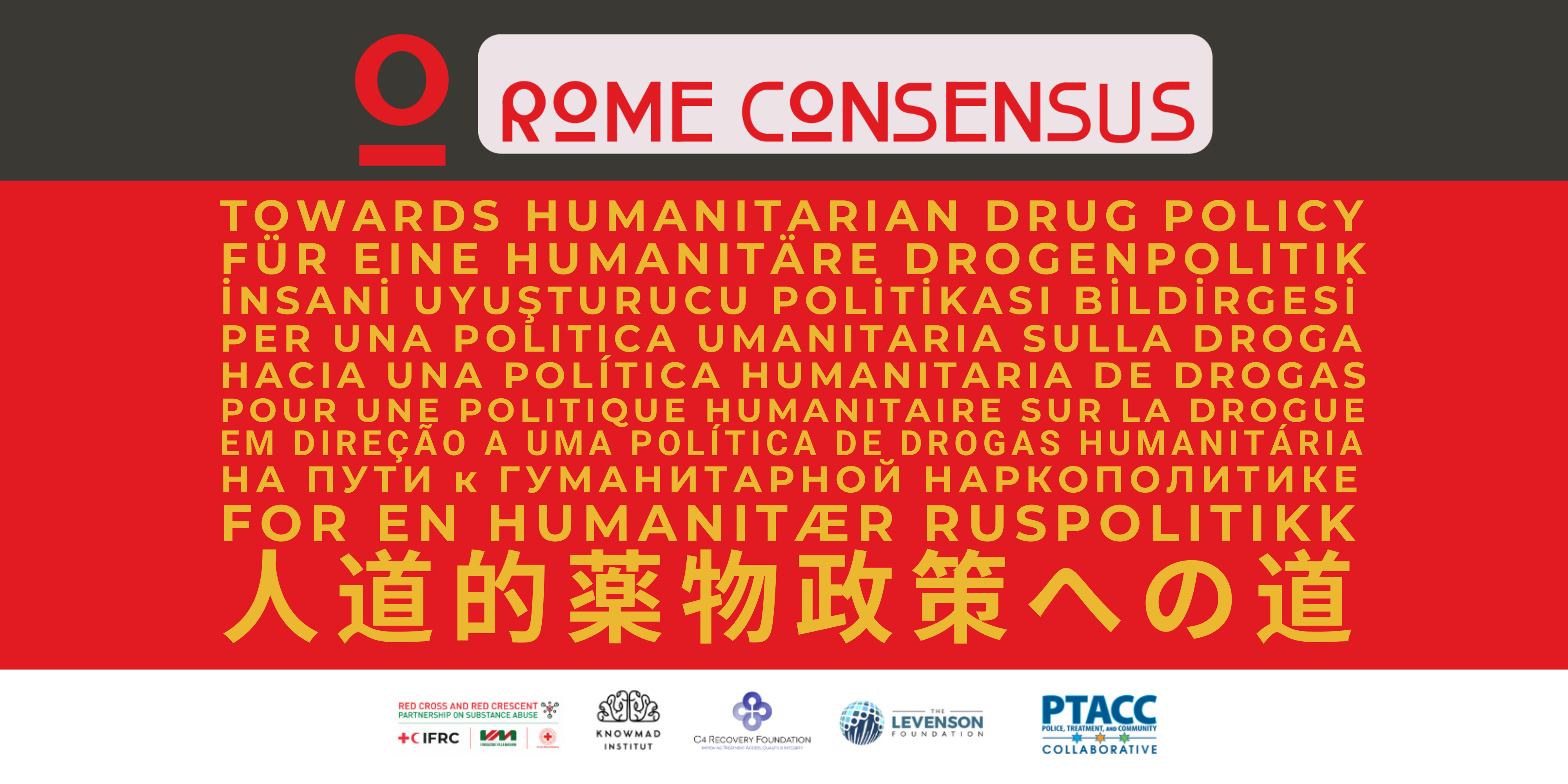ABOUT ROME CONSENSUS
The sense of the humanitarian policy action aims to address the drug problems at all levels by giving emphasis to a humane attitude in support of people with drug disorders. We mainly focus our action for those who are struggling with their sickness everyday, to those persons who live a miserable life because they are discriminated, tortured, deprived of any health and social support, deprived of their rights and dignity. The primary objective of humanitarian aid and approach is to save lives, alleviate suffering, and maintain human dignity. We are mostly focused on the urgency to decrease the harm, right now, for people and communities affected by addictions.
RED CROSS/RED CRESCENT PARTNERSHIP ON SUBSTANCE ABUSE
Is a tripartite task force between the International Federation of Red Cross and Red Crescent Societies (IFRC), the Italian Red Cross and Villa Maraini rehab center, founded in 2012 in response to the increase of substance abuse and related problems globally. The mission is to leverage the knowledge and long experience of Villa Maraini Foundation in treating drug addicts and raise awareness on humanitarian drug policy strategy among the Red Cross and Red Crescent National Societies, NGOs and public authorities. The Villa Maraini treated more than 40 thousands people with addiction in almost 45 years, and has been the first drug center worldwide that started to administer naloxone on the street by non medical staff, saving more than 2.500 people from overdose (since 1992). In the last decade has increased its advocacy role and become a reference training center not just for the Red Cross/Red Crescent Movement but also for many organizations active in the field of substance abuse.
Website: www.villamaraini.it
Facebook:@fondazionevillamaraini
Twitter: @VillaMaraini
C4 RECOVERY FOUNDATION
Is a Public Charity dedicated to the premise that society’s path to achieving improved access, quality, and integrity of behavioral health and substance use disorder treatment is through education, shared knowledge, and rigorous research.
Website: https://www.c4recoveryfoundation.org
Facebook: @C4RecoveryFoundation
Twitter: @C4recovery
THE LEVENSON FOUNDATION
Is a privately-funded non-profit chartered in 2012 to measurably impact some of the most traumatized and disadvantaged populations on Earth. Through the lens of mental health, we work at all levels from policy to direct care provision seeking to enhance access to relevant services by those who struggle with awide range of complex challenges, including addictive illnesses, mental health issues, PTSD, trauma and concomitant issues.
Learn more about our portfolio of global activity at http://www.levensonfoundation.org/
Facebook:@thelevensonfoundation
Twitter: @LevensonFoundtn
PTACC – THE POLICE, TREATMENT, AND COMMUNITY COLLABORATIVE
Is an alliance of practitioners and organizations in law enforcement, drug treatment, mental health, housing, community, advocacy, recovery, research, social services (inclusive of families and children), and public policy whose mission is to strategically widen treatment, housing, and social service options available for vulnerable populations at the point of encounter with law enforcement. These practices, known as “deflection” and “pre-arrest diversion”, move people towards community-based solutions while simultaneously moving people away from the criminal justice system in order to address the underlying behavioral health issues that led to contact with law enforcement in the first place. PTACC promotes equity with regard to race, gender, income, and geography in the application of deflection and pre-arrest diversion. PTACC is the recognized knowledge leader for deflection and pre-arrest diversion, and also provides a voice for the entire field of deflection and pre-arrest diversion.
Website: https://ptaccollaborative.org/
Twitter: @PTAC_Collab
KNOWMAD INSTITUT
The European Institute for Multidisciplinary Human Rights and Science Studies – Knowmad Institut gemeinnützige UG (lim.resp.) – is an independent think & do tank based in Germany. Recognized as a social interest company for the promotion of science and research, the vision is to contribute to the promotion and fulfillment of the United Nations Sustainable Development Goals (SDG’s), and thus to contribute to the construction of a sustainable, just and multipolar world. Linking civil society, academia, states, and the private sector. Analyzing reliable information in a comprehensive and multidisciplinary approach that facilitates knowledge management, to educate and disseminate bold and innovative proposals that promote common solutions to global problems. Building a solid evidence base allows us to better support decision makers, opinion leaders, and pressure and advocacy groups to explore and promote initiatives based on human dignity, facts and science.
Website: https://knowmadinstitut.org/
Twitter: @KnowmadInstitut
The Rome Consensus 2.0 plans to organise a series of meetings to promote discussion and then action on the Consensus Statement. Designed to bring together Civil Society Organizations, leaders, experts and public authorities from across the world to explore ways to effectively combine humanitarian attitude in health, criminal justice, prevention and community responses to addiction.
After the first meeting in Rome, in which we re-launched the Consensus, we aim to raise awareness on this initiative during the CND meetings in in Vienna, starting from 2020, during a High-level Side Event together with UNODC, WHO, Italian Government, and all the Co-Founders. We will further advocate this initiative in other international meeting and in local communities throughout each of the partners that will allow us to work together.










